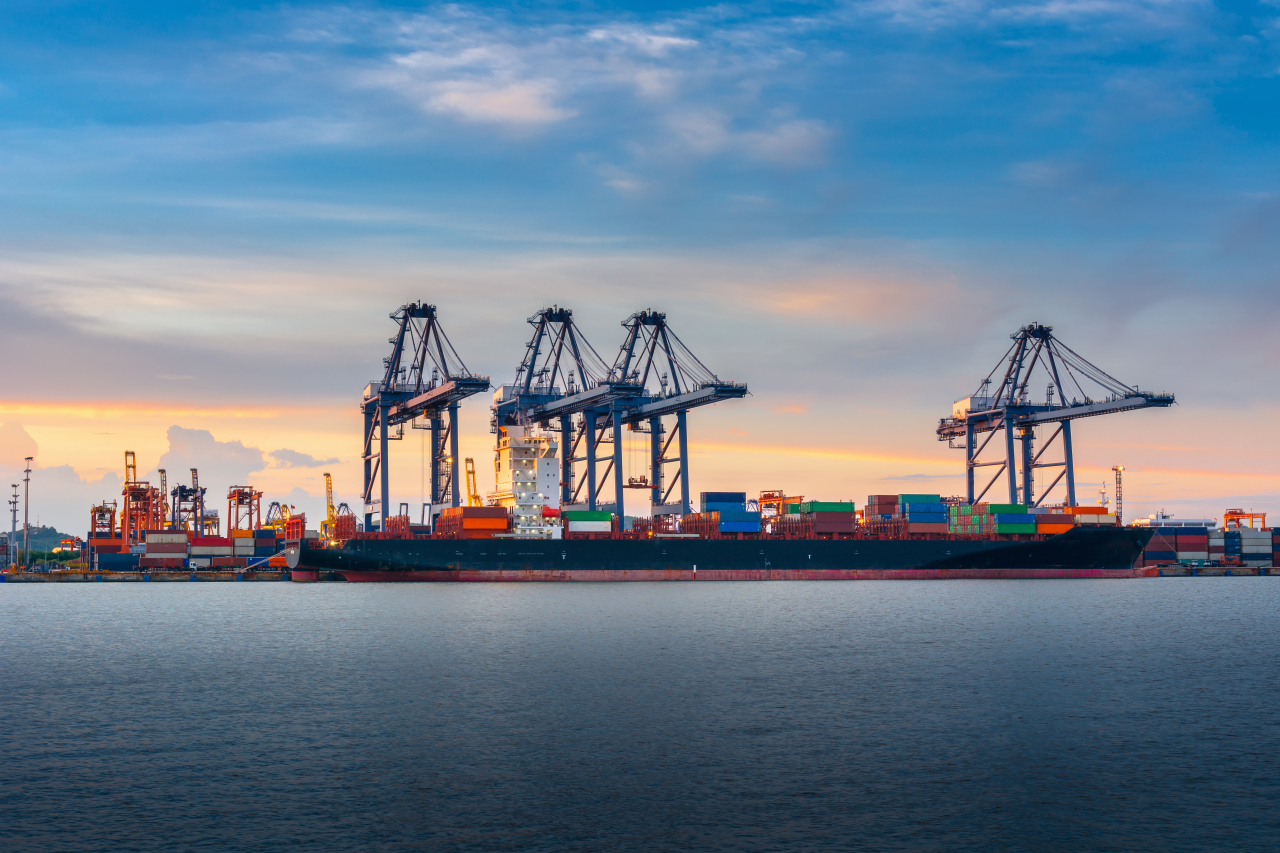Korea’s Q1 GDP falls short on weak investment, consumption
By Choi Si-youngPublished : June 8, 2022 - 18:29

South Korea’s economy grew 0.6 percent in the first quarter this year from three months earlier, lower than the 0.7 percent growth forecast in April, the Bank of Korea said Wednesday, citing weak investment and consumption as factors behind the revision.
Growth in the gross domestic product for January-March, which slowed from 1.3 percent on-quarter in the previous cycle, expanded 3 percent on-year, also a drop from the 3.1 percent growth the central bank projected in April.
“Data on the current account and industrial production was put in later,” Hwang Sang-pil, a senior BOK official in charge of statistics, told reporters. “Especially data on construction investment turned out to be widely different.”
The latest data showed investments in construction and facilities dropped 3.9 percent from the previous quarter, while in the same period private consumption fell 0.5 percent. But exports led by chips and chemical products surged 3.6 percent in the same period, offsetting losses.
The downward GDP revision by the central bank comes as Asia’s fourth-largest economy steps up efforts to ride out persistent inflation and avert anemic growth to follow, if prices run too high for too long.
Korea is expected to revise its growth and inflation forecasts for this year, with officials betting on raising the inflation target to the 4 percent range -- double the projection made last year -- while slashing the growth forecast to the 2 percent range from the current 3.1 percent.
Hwang said Korea could achieve 2.7 percent growth this year if private consumption picks up speed with the eased COVID-19 rules and recent cash relief. A week earlier, the parliament greenlit an extra budget aimed at helping the small businesses hit hardest by COVID-19.
“If the economy grows 0.5 percent on-quarter until year-end, the 2.7 percent target is reachable,” Hwang said.
Meanwhile, the World Bank on Tuesday slashed its forecast for global economic growth to 2.9 percent for 2022, warning of stagflation or “a protracted period of feeble growth and elevated inflation” as Russia’s invasion of Ukraine complicates the global economy.
The bank, which cut its forecast from 4.1 percent made in January this year, set growth targets for both 2023 and 2024 at 3 percent.
Sapping demand alongside tighter fiscal and monetary policies, combined with supply bottlenecks stemming from the geopolitical unrest in Ukraine, were the reasons for the latest revision, the bank noted, urging the international community to take action to avoid a worsening economic crisis.
Efforts to stabilize prices, reduce debts and vaccinate marginalized countries globally would be one way to do so, the bank added.
Advanced economies would see growth decelerate to 2.6 percent in 2022 and 2.2 percent in 2023 after reaching 5.1 percent in 2021, while growth in emerging and developing economies would slow to 3.4 percent in 2022 and 4.2 percent in 2023, after hitting 6.6 percent in 2021, according to the bank.
Growth in the gross domestic product for January-March, which slowed from 1.3 percent on-quarter in the previous cycle, expanded 3 percent on-year, also a drop from the 3.1 percent growth the central bank projected in April.
“Data on the current account and industrial production was put in later,” Hwang Sang-pil, a senior BOK official in charge of statistics, told reporters. “Especially data on construction investment turned out to be widely different.”
The latest data showed investments in construction and facilities dropped 3.9 percent from the previous quarter, while in the same period private consumption fell 0.5 percent. But exports led by chips and chemical products surged 3.6 percent in the same period, offsetting losses.
The downward GDP revision by the central bank comes as Asia’s fourth-largest economy steps up efforts to ride out persistent inflation and avert anemic growth to follow, if prices run too high for too long.
Korea is expected to revise its growth and inflation forecasts for this year, with officials betting on raising the inflation target to the 4 percent range -- double the projection made last year -- while slashing the growth forecast to the 2 percent range from the current 3.1 percent.
Hwang said Korea could achieve 2.7 percent growth this year if private consumption picks up speed with the eased COVID-19 rules and recent cash relief. A week earlier, the parliament greenlit an extra budget aimed at helping the small businesses hit hardest by COVID-19.
“If the economy grows 0.5 percent on-quarter until year-end, the 2.7 percent target is reachable,” Hwang said.
Meanwhile, the World Bank on Tuesday slashed its forecast for global economic growth to 2.9 percent for 2022, warning of stagflation or “a protracted period of feeble growth and elevated inflation” as Russia’s invasion of Ukraine complicates the global economy.
The bank, which cut its forecast from 4.1 percent made in January this year, set growth targets for both 2023 and 2024 at 3 percent.
Sapping demand alongside tighter fiscal and monetary policies, combined with supply bottlenecks stemming from the geopolitical unrest in Ukraine, were the reasons for the latest revision, the bank noted, urging the international community to take action to avoid a worsening economic crisis.
Efforts to stabilize prices, reduce debts and vaccinate marginalized countries globally would be one way to do so, the bank added.
Advanced economies would see growth decelerate to 2.6 percent in 2022 and 2.2 percent in 2023 after reaching 5.1 percent in 2021, while growth in emerging and developing economies would slow to 3.4 percent in 2022 and 4.2 percent in 2023, after hitting 6.6 percent in 2021, according to the bank.



![[Exclusive] Korean military set to ban iPhones over 'security' concerns](http://res.heraldm.com/phpwas/restmb_idxmake.php?idx=644&simg=/content/image/2024/04/23/20240423050599_0.jpg&u=20240423183955)

![[Graphic News] 77% of young Koreans still financially dependent](http://res.heraldm.com/phpwas/restmb_idxmake.php?idx=644&simg=/content/image/2024/04/22/20240422050762_0.gif&u=)



![[Pressure points] Leggings in public: Fashion statement or social faux pas?](http://res.heraldm.com/phpwas/restmb_idxmake.php?idx=644&simg=/content/image/2024/04/23/20240423050669_0.jpg&u=)










